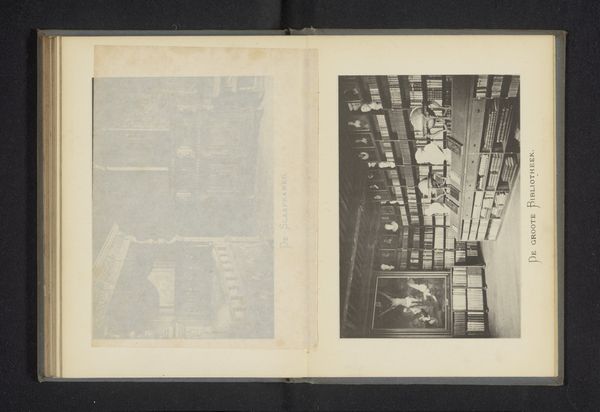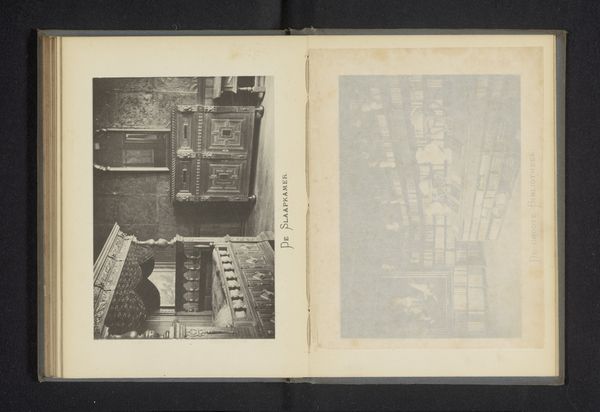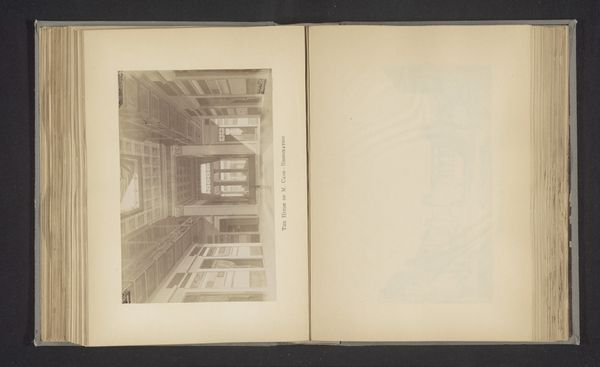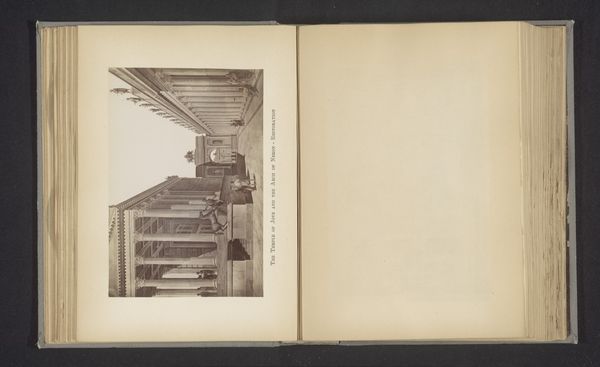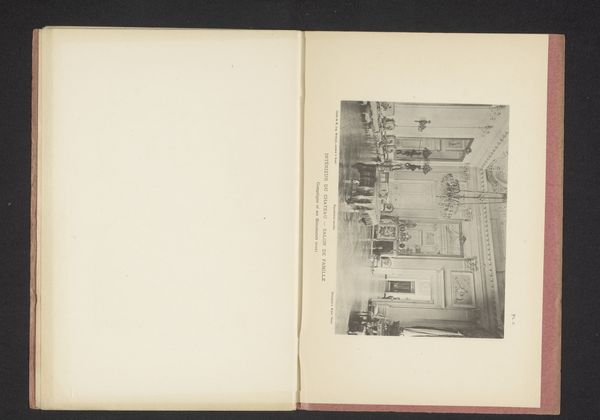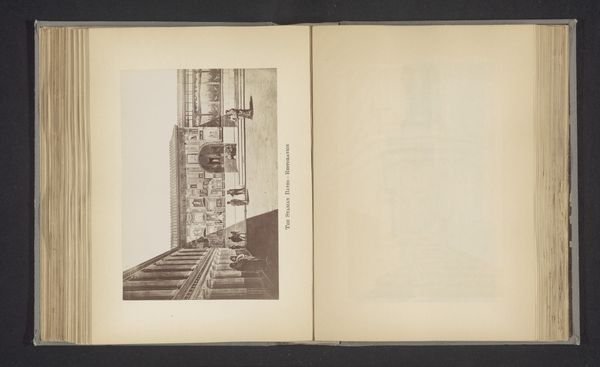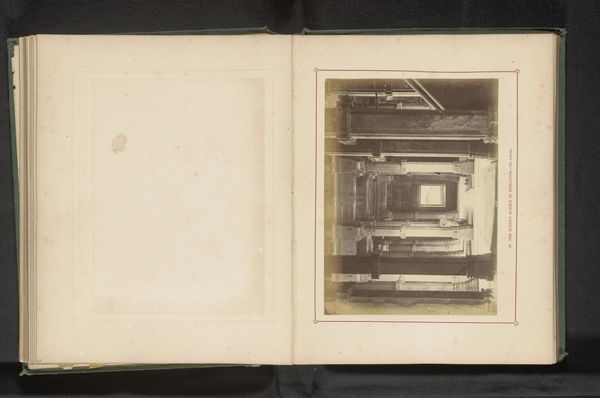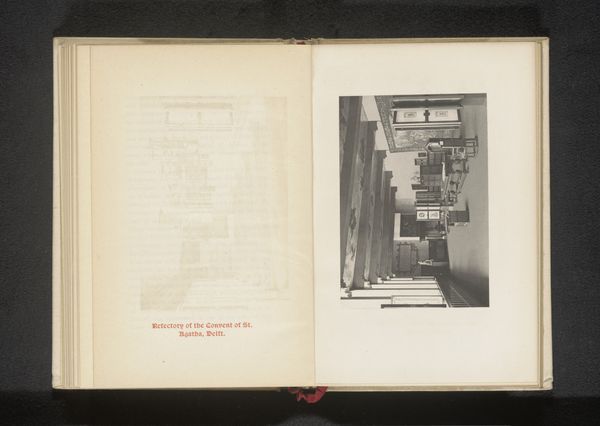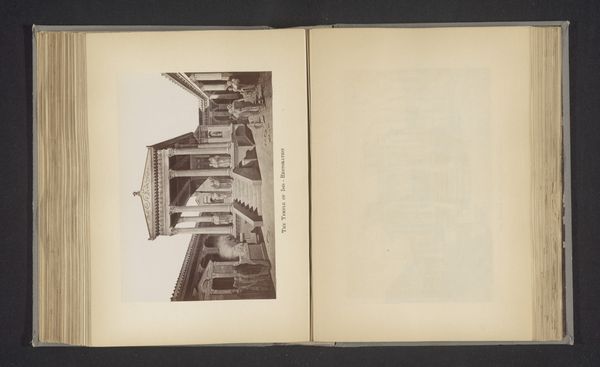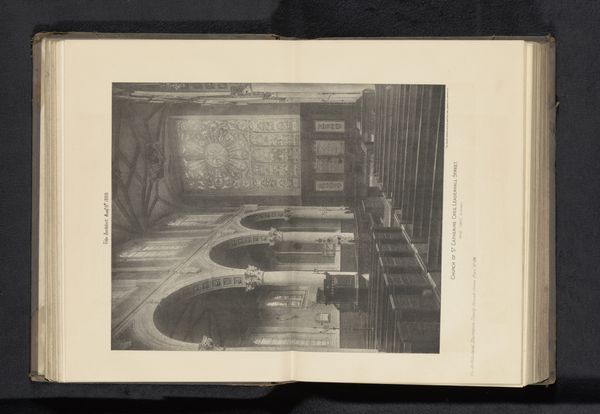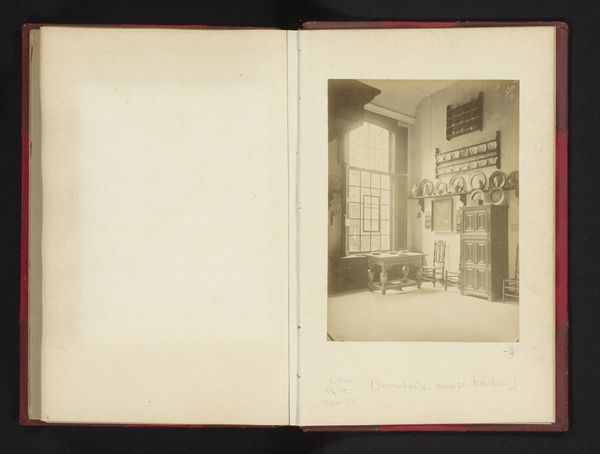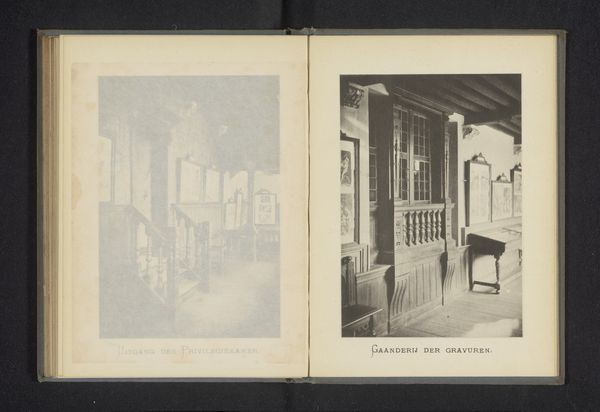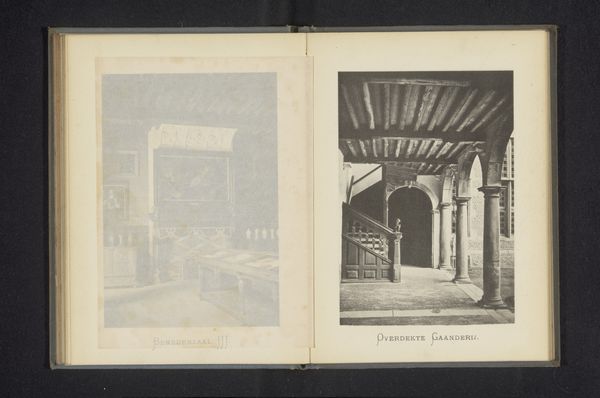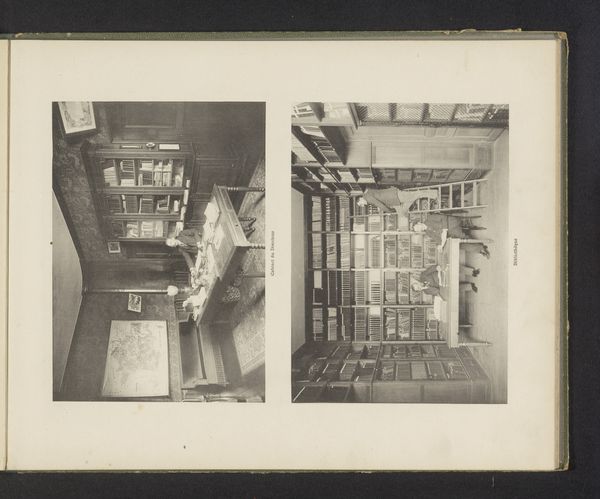
print, photography
# print
#
photography
#
cityscape
#
genre-painting
#
realism
Dimensions: height 110 mm, width 160 mm
Copyright: Rijks Museum: Open Domain
Editor: This photogravure print, “Interieur van de correctors kamer het huis van Christoffel Plantijn” attributed to Joseph Maes, dating from before 1886, captures a rather domestic interior. What strikes me is the almost overwhelming presence of books. What’s your take on this work? Curator: The photogravure process is interesting in itself because it’s about mass production and reproducibility. Looking at the left print with all of these books it almost looks like a bird cage, doesn’t it? What does it say about power dynamics when we view knowledge this way? What statements is the piece trying to make about intellectual labor, accessibility, and potentially, the gatekeeping that defined this era? Editor: Gatekeeping... Interesting. I hadn't considered that the abundance could also imply exclusion. Are you saying that by emphasizing this abundance, the artist may be critiquing the control over knowledge? Curator: Absolutely. And it isn't just about access to books, but also to education and literacy. Who gets to be in that room and engage with those ideas? What is seen in the right picture seems sterile and a stark contrast to the filled shelves, and even possibly implies emptiness or nothing. In both rooms, who are we missing? Whose voices aren't represented? Considering Plantijn’s history with publishing and dissemination, that question becomes even more poignant. Editor: So, by examining the historical context and power structures embedded within this seemingly simple interior scene, we reveal its complexities? Curator: Precisely. And by viewing it through a critical lens, focusing on absence and representation, we can gain a deeper understanding of the era's intellectual and social climate. The art encourages an important dialog. Editor: This is so insightful. I will look at similar artwork completely different now. Curator: That is good. Thinking critically about art always leads to a fuller, and more inclusive, perspective on not only history, but our contemporary world as well.
Comments
No comments
Be the first to comment and join the conversation on the ultimate creative platform.
